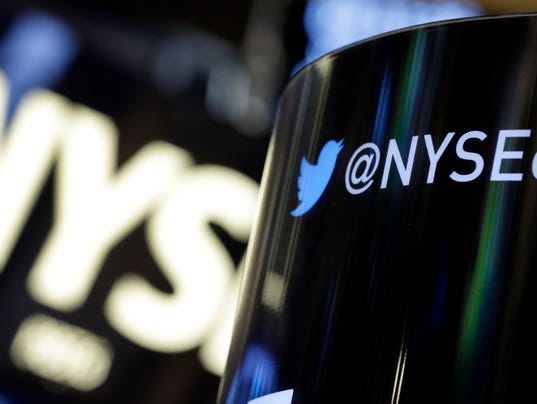When the markets open Thursday morning, Twitter will officially become a public company.
The microblogging service begins trading on the New York Stock Exchange starting at 9:30 a.m. ET under the ticker symbol TWTR. Here are five things you need to know about Twitter's IPO.
1. The magic number is $26.
Twitter priced shares at $26 a pop, above the $23-$25 that had been predicted. The $26 price values the company at $18.34 billion. That's more than Macy's, which has a market capitalization of $17 billion, and Bed Bath & Beyond, which is around $16 billion. According to markets service Dealogic, Twitter becomes the second largest Internet IPO by an American company, trailing only Facebook. It's also the third-largest U.S. IPO this year.
2. A busy debut.
3. The world's newest billionaires.
Twitter co-founder Evan Williams, owner of the largest stake in the company, will reap the most rewards from the IPO launch. He's expected to rake about $1 billion. If the stock price doubles, fellow co-founder and Square CEO Jack Dorsey would join Williams in the billionaires club. On March 21, 2006, Dorsey posted the world's first tweet: "Just setting up my twttr."
4. How prepared is the NYSE?
There is some concern Twitter's arrival could feature the same scattered technical glitches that plagued Facebook when it joined the Nasdaq last spring. However, following a successful test run, the NYSE appears confident it can handle the extra volume. "We are being very methodical in our planning for Twitter's IPO, and are working together with the industry to ensure a world-class experience for Twitter, retail investors and all market participants," said NYSE spokeswoman Marissa Arnold in a statement.
5. Should you get shares of Twitter?
There are several ways for regular investors to snag Twitter shares, from working with a brokerage firm to buying through a mutual fund. But should you? As USA TODAY"s Matt Krantz explains, if you don't know how to buy shares of IPOs, then don't try. But even if you do invest regularly, you might want to hold off. As Krantz notes: "If the large, wealthy investors aren't snapping up the shares, you should ask why not."

 07:12
07:12
 Admin
Admin


 Posted in:
Posted in: 
0 comments:
Post a Comment